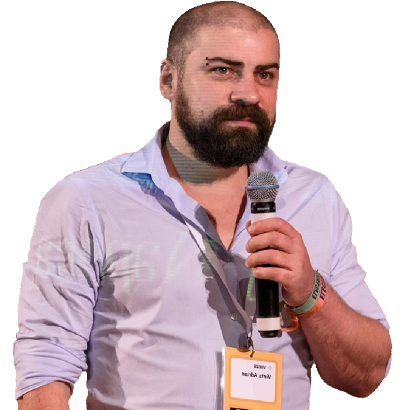Când eram adolescent am realizat ceva ce mi-a schimbat viața: nu oamenii de la televizor mi-au distrus fericirea. Nu era Iliescu sau Băsescu vinovat de nefericirea mea, nu evenimentele tot mai violente căutate de către reporteri m-au băgat în depresie.
Dar cine era vinovatul pentru suferința mea? Am mai avut nevoie de câțiva ani până să înțeleg că oamenii care mă distrugeau, și care te distrug pe tine, sunt cei care petrec timp fizic cu mine/tine: preotul, profesorii, colegii, „prietenii”, șeful, mama.
Fiecare dintre ei au fost îndoctrinați să distrugă pe cei din jur, în mod inconștient și/sau conștient. Iar metoda cea mai bună de tortură și anihilare a copilului, care este? Cuvintele, precum modul în care le folosesc, ca de exemplu:
„Nu mai plânge!”
„Lasă jos murdăria aia!”
„Ești cel mai prost copil!”
Dar nici o expresie nu se apropie de cel mai distrugător cuvânt pe care îl folosește mama ca cuțit împotriva copilului și soțului.
Nu e nevoie ca mama să aibă forță fizică – „știința” ei, „expertismul” ei exprimat în mod violent este 80% din nefericirea sutelor de oameni a căror poveste am ascultat-o.
Dacă vrei să vezi cum te-a distrus mama, de ce chiar și la 40 de ani nu ai încredere în tine, nu ai curaj să vorbești cu oamenii sau să începi o firmă pe cont propriu, atunci te ajută Marshall B. Rosenberg să îți recreezi viața – de fapt, să te naști a doua oară!
Citatele folosite în această recenzie sunt următoarele.
1.
One kind of life-alienating communication is the use of moralistic judgements that imply wrongness or badness on the part of the people who don’t act in harmony with our values. Such judgements are reflected in language: “The problem with you is that you’re too selfish”, “She’s lazy”.
2.
Another kind of life-alienating communication is denial of responsibility. Communication is life alienating when it clouds our awareness that we are each responsible for our own thoughts, feelings and actions.
The use of the common expression have to as in “There are some things you have to do whether you like it or not” illustrates how personal responsibility for our actions can be obscured in speech.
3.
We deny responsibility for our actions when we attribute their cause to factors outside ourselves.
I drink because I am an alcoholic.
I hit my child because he ran into the street.
I lied to the client because the boss told me to.
I started smoking because all my friends did.
I hate going to work but I do it because I am a husband and a father.
4.
Human beings, when hearing any kind of demand tend to resist because it threatens our autonomy – our strong need for choice. We have this reaction to tyranny even when it’s internal tyranny in the form of a should.
A similar expression of internal demand occurs in the following self-evaluation: “What I’m doing is just terrible. I really must do something about it!” Think for a moment of all the people you’ve heard say, “I really should give up smoking.” or “I really have to do something about exercising more.”
They keep saying what they “must” do and they keep resisting doing it because human beings were not meant to be slaves.
We were not meant to succumb to the dictates of “should” and “have to,” whether they come from outside or inside of ourselves. And if we do yield and submit to these demands, our actions arise from an energy that is devoid of life-giving joy.




